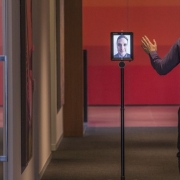Wages And Opportunities Are Surging For Everyone In The USA. Only The Elite Snobs Fail To See It.
“Through these initiatives, Taco Bell aims to enhance restaurant performance, employee satisfaction and support recruitment and retention.” Those are the words from a press release produced in Taco Bell’s corporate headquarters last week by the restaurant chain’s management.
The communique from the fast food giant described a plan to pay restaurant managers in the Midwest and Northeast six-figure salaries. It seems Taco Bell’s hierarchy, wholly cognizant of how important talent acquisition is to the chain’s success, is willing to back its press release with real money. Notable about Taco Bell management’s decision is that it’s hardly alone.
The New York Times reported in 2017 that retail giant Walmart had spent $2.7 billion in the two previous years “on training and raising wages for 1.2 million of its store workers.” Walmart similarly recognizes how crucial is talent acquisition and retention. Precisely because more than a quarter of store workers are in supervisory and managerial positions, the importance of employee investment is in no way minimized. Notable about Walmart managers is that they earn an average of $170,000/year.
Too rich for you? Nowadays Uber management provides college tuition for its “exploited” drivers, as does Starbucks. So eager is the coffee chain to retain workers that it provides free college and health insurance to its baristas. Prosperity redounds to workers in that the growth itself opens up endless opportunities for those workers. Demand for them across all industries and pay scales soars. The smart businesses pre-empt the departure of their best and brightest by offering all manner of pay and perk inducements.
All of the above came to mind while reading University of Texas professor Michael Lind’s essay on the “managerial elite” in last Saturday’s Wall Street Journal. To begin, it always raises eyebrows when some pundit or academic writes of a “crisis” unfolding. Left and right do this all the time. For as long as this writer’s been alive there have been climate, energy, deficit, debt, entitlement, economic, demographic, and countless other “crises” ginned up by the same “elites” whom Lind aims to take down. Self-unaware like so many of his ilk, Lind didn’t realize he was essentially attacking himself minus the manager title.
In Lind’s case he writes of a “political crisis” that amounts to “the revolt of alienated, mostly but not exclusively native and white working-class voters against post-national metropolitan elites.” The “alienated” are apparently those not in the managerial elite.
Lind laughably claims that what he identifies as a “ruling class” comprised of managerial elites “periodically notifies the working-class majority what values and opinions about sex, immigration and other topics it must immediately adopt without debate, on pain of being blacklisted by the private sector, prosecuted by the government or censored or erased by the media.” Wait a second. What?
At first glance, it must be great to be an academic, and by extension a card-carrying member of the elite that Lind aims to distance himself from in comical fashion. It seems, if Lind’s baseless rant is to believed, that one of the significant benefits of status is that you can make grand statements with no factual or logical basis, and you get to do so at some of the world’s most prominent publications. Does Lind have any evidence supporting the statement from the previous paragraph?
It’s worth asking simply because in the real world of management that Lind is plainly unfamiliar with, the best managers routinely go out of their way to please their workers. No doubt it’s possible that in secret these managers view the working classes in the mouth-breathing way that Lind obliquely does (hence his view that elites and workers see the world entirely differently), but their actions indicate a desire to please them in any way possible. It’s very expensive for the managerial elite to constantly lose their employees to others not as “snobbish” toward their workers.
“Snobbish” is put in quotes in consideration of Lind’s view that it’s “a snobbish mistake to assume that people in ‘left behind’ regions should simply ‘“move to opportunity.”’ Why should members of the working class move?” Translated, Lind detects elitism in the belief among some that if opportunity is scarce in certain U.S. locales, prosperity is never far away if they’re willing to get up and go.
Except that what’s really “snobbish” is the belief that workers shouldn’t “move to opportunity.” It’s snobblish because it insults the very people who made the U.S. great by risking everything (including their lives) on the way to crossing borders and oceans in order to taste personal and economic freedom in the United States. These intrepid individuals were of course promised nothing if they were lucky enough to reach the U.S., but made the ultimate leap on the assumption that freedom to achieve would be all they would need to better themselves economically.
Implicit in Lind’s stance is that those lucky enough to live in the United States today, and by extension those who are lucky enough to be able to freely migrate throughout the greatest zone of prosperity the world has ever seen, shouldn’t be expected to care enough about themselves to get up and find opportunity wherever it might be. They can’t be expected to do what their ancestors did even though their ancestors rushed to opportunity at a time when trains, planes and automobiles to transmit them were scarce to non-existent. Some moved before there were paved roads altogether. Lind seems to be saying that the call to “move to opportunity” is “for others,” particularly those seemingly grubby illegal immigrants so poor that they don’t have a choice, and who, to believe Lind, are a burden on the natives. How dare they come to the U.S.?!
The problem for Lind is his silly, snobblish argument is part of a book. And Lind is of course talking his book. If his Journal essay is any kind of indication, Lind’s stance unwittingly makes him sound like the snobs he claims to disdain.
The natives, if Lind is to be believed, do have a choice to not better their situation. The professor seems to think they needn’t do so. That’s for poor people not so fortunate as to live in the U.S. How very elitist.






